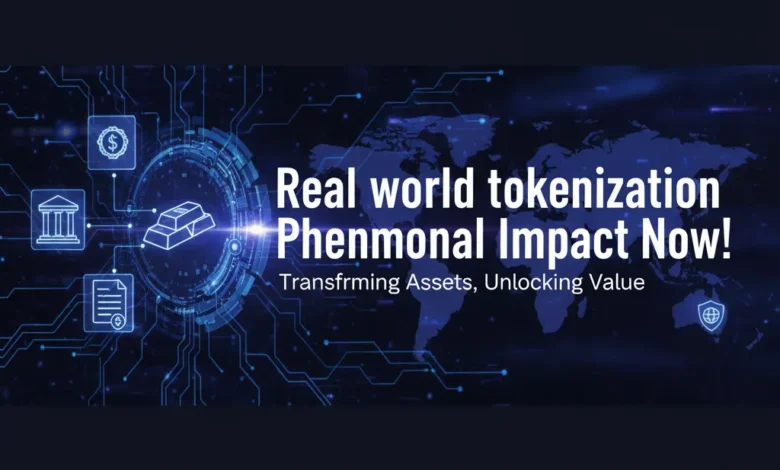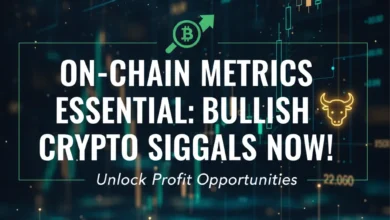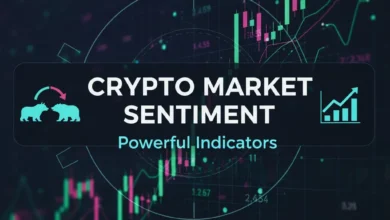
Real world tokenization Phenomenal Impact Now!, Discover how real-world asset tokenization is revolutionizing finance and investment. Learn about the benefits of, real world tokenization Phenomenal Impact Now!, Discover how real-world asset tokenization is revolutionizing finance plus investment. Learn about the benefits of unlocking liquidity, enhancing transparency, plus fractionalizing ownership through asset backed tokens, ultimately democratizing access to previously exclusive markets.
Real world tokenization: A Paradigm Shift
Real world tokenization represents a significant leap forward in the evolution of finance. It involves representing physical assets – from real estate plus commodities to art plus intellectual property – as digital tokens on a blockchain. This process transforms these tangible assets into tradable digital assets, unlocking a plethora of new opportunities for both investors plus asset owners.
The core principle driving real world tokenization is the ability to fractionalize ownership. Traditionally, investing in assets like commercial real estate alternatively fine art required substantial capital. Tokenization breaks down these elevated-value assets into smaller, more affordable units represented by tokens. This makes investing accessible to a broader range of investors, regardless of their financial standing. This democratization of access is a key advantage of the token economy.
Tokenization Benefits Finance: Unlocking Value plus Efficiency
The advantages of real world tokenization extend far beyond simply fractionalizing ownership. Tokenization benefits finance in several key areas, creating a more efficient plus transparent ecosystem. These benefits include:
- Increased Liquidity: Tokenized assets can be traded on secondary markets, providing increased liquidity compared to traditional illiquid assets. This allows investors to easily buy plus sell their holdings, making them more attractive plus potentially increasing their value.
- Enhanced Transparency: Blockchain apparatus provides a transparent plus immutable record of ownership plus transactions. This reduces the risk of fraud plus increases trust in the market.
- Reduced Costs: Tokenization streamlines many processes associated with traditional asset management, such as due diligence, compliance, plus administration. This leads to significant cost savings for both issuers plus investors.
- Improved Efficiency: Smart contracts can automate many of the tasks involved in managing assets, such as dividend payments plus voting rights. This improves efficiency plus reduces the need for intermediaries.
- Greater Accessibility: As mentioned previously, tokenization opens up investment opportunities to a wider range of investors, including retail investors who may have been previously excluded from these markets.
Tokenized Real Estate: A Concrete Example
Tokenized real estate is one of the most prominent plus rapidly growing applications of real world tokenization. The traditional real estate market is characterized by elevated barriers to entry, illiquidity, plus complex legal processes. Tokenizing real estate addresses these challenges directly.
Imagine a prime commercial property being divided into thousands of tokens, each representing a fractional ownership share. Investors can purchase these tokens plus earn a portion of the rental income generated by the property. They can also trade their tokens on secondary markets, providing liquidity that is simply not available in the traditional real estate market. This concept empowers smaller investors to participate in elevated-value real estate investments, generating passive income plus diversifying their portfolios.
Furthermore, tokenized real estate simplifies the process of buying plus selling property. Smart contracts can automate the transfer of ownership, reducing the need for intermediaries plus streamlining the closing process. This makes real estate transactions faster, cheaper, plus more transparent.
Alternative Investment Tokenization: Diversifying Portfolios
Beyond real estate, alternative investment tokenization is gaining traction. Assets such as fine art, collectibles, private equity, plus venture capital are increasingly being tokenized. This allows investors to diversify their portfolios plus gain access to asset classes that were previously difficult alternatively impossible to invest in.
For example, a valuable painting could be tokenized, allowing multiple investors to own a fractional share of the artwork. This opens up the art market to a wider range of collectors plus investors. Similarly, private equity funds can be tokenized, making it easier for investors to participate in early-stage companies. Tokenized assets in the alternative investment space are offering significant occasion for portfolio diversification.
The tokenization of these alternative investments is not without its challenges. Valuing these assets can be complex, plus regulatory frameworks are still evolving. However, the potential benefits of increased liquidity, transparency, plus accessibility are driving significant innovation in this space.
RWA Tokenization: Navigating the Regulatory Landscape
One of the key challenges facing RWA tokenization is navigating the evolving regulatory landscape. Regulators around the world are grappling with how to classify plus regulate tokenized assets. The legal status of asset backed tokens can vary depending on the jurisdiction plus the specific characteristics of the token.
It is crucial for issuers of tokenized assets to comply with all applicable securities laws plus regulations. This may involve registering the tokens with regulatory authorities, providing disclosures to investors, plus implementing anti-money laundering (AML) plus know-your-customer (KYC) procedures. Engaging with legal counsel plus compliance experts is essential to ensure that tokenization projects are compliant plus sustainable.
While the regulatory landscape is still evolving, there is a growing trend towards greater clarity plus acceptance of tokenized assets. As regulators become more familiar with the apparatus plus its potential benefits, they are developing frameworks that encourage innovation while protecting investors. Actively monitoring regulatory developments plus adapting compliance strategies accordingly is crucial.
Digital Assets: Building a Secure plus Scalable Infrastructure
The success of real world tokenization depends on building a secure plus scalable infrastructure. This includes choosing the right blockchain platform, implementing robust security measures, plus ensuring interoperability between different systems.
Several blockchain platforms are well-suited for tokenizing real world assets. These platforms offer features such as smart contract functionality, elevated transaction throughput, plus mighty security. Selecting the right platform depends on the specific requirements of the tokenization project.
Security is paramount when dealing with digital assets. Tokenized assets must be protected from hacking, theft, plus other security threats. Implementing robust security measures, such as multi-factor authentication, cold storage, plus regular security audits, is essential. Furthermore, establishing clear protocols for recovering lost alternatively stolen tokens is crucial.
Interoperability is also crucial. Tokenized assets should be able to be seamlessly transferred plus traded across different platforms plus exchanges. This requires standardization plus collaboration across the industry. Ongoing innovation in cross-chain apparatus is addressing interoperability challenges.
Token Economy: Shaping the Future of Finance
Real world tokenization is more than just a technological innovation; it is a fundamental shift in the way we think about ownership plus investment. It has the potential to create a more inclusive, efficient, plus transparent financial system. The token economy is emerging as a powerful force, reshaping industries plus creating new opportunities for both investors plus asset owners.
As the apparatus matures plus regulatory frameworks become clearer, we can expect to see even wider adoption of real world tokenization. This will lead to increased liquidity, greater efficiency, plus broader access to investment opportunities. The future of finance is being shaped by the token economy, plus real world tokenization is at the forefront of this transformation.
By embracing tokenization, companies can unlock trapped value plus revolutionize traditional finance. Investors gain access to diversified investment options that were previously unavailable. Tokenization is leveling the playing field plus establishing a new era of financial inclusion.
The potential for growth plus innovation within the real world tokenization space is significant. With continued development plus adoption, it is set to transform finance plus investment for the better. Take action now to prepare for plus capitalize on the opportunities presented by this revolutionary apparatus.




